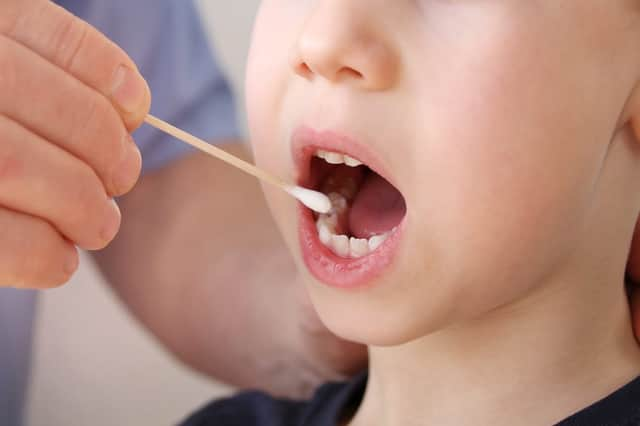False positive Covid tests could be disrupting teaching in schools - how common are false positives?


Experts in England have said the frequency of false coronavirus tests is forcing school pupils to self-isolate unnecessarily.
After the return of English school pupils on 8 March, reports have begun to emerge of children being obliged to self-isolate after receiving a positive Covid test result, even when a second, lab processed test confirms a negative result.
Advertisement
Hide AdAdvertisement
Hide AdUnder new rules, pupils in secondary schools must undergo lateral flow tests twice a week, with the first three administered at school, while the rest will be conducted at home.
Lateral flow (or 'rapid') tests are one of the fastest ways to identify a coronavirus infection, giving results within around 30 minutes of taking the test.
Concerns have been raised, however, over the accuracy of these tests, with the Royal Statistical Society believing that low infection rates among pupils may be producing more false positive results than accurate positive results.
Different rules for workplaces and schools
While the result of a rapid test can overruled by a lab test if taken in a workplace or at home, the Government has said this can't be the case in schools, though has not provided an explanation as to why.
Advertisement
Hide AdAdvertisement
Hide AdEstimates have put the rate of false positives with rapid tests at a relatively low rate of 0.1 per cent. However, given the vast number of students being offered the test, it's believed that thousands of pupils may be receiving false positives and thus having to self-isolate unnecessarily.
These pupils will be obliged to continue isolating even if a later, lab-processed PCR test reveals that they are negative.
This will also affect their families and any close contacts, who will have to self-isolate off the back of a positive result.
As yet, the Government have not explained their policy of disallowing a PCR test from overruling the result of a rapid test.
In a statement, Health Secretary Matt Hancock said the approach would "help detect asymptomatic cases quickly" preventing the virus from entering schools and colleges.